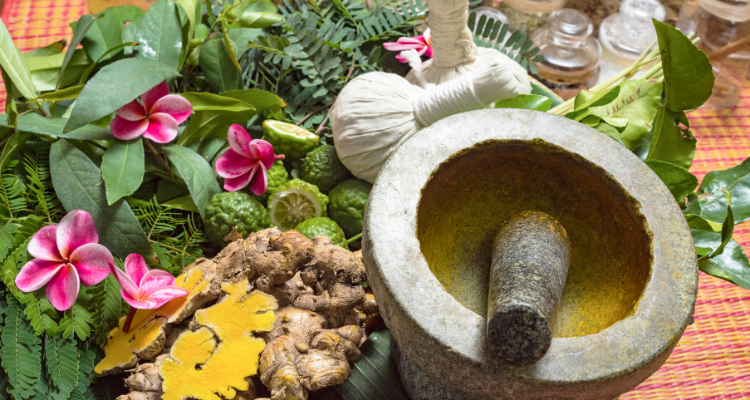Ayurveda is one of the world’s oldest holistic healing systems, with roots that can be traced back over 5,000 years in the Indian subcontinent. The word “Ayurveda” is derived from two Sanskrit words: “ayur,” which means life, and “veda,” which means knowledge or science. Therefore, Ayurveda can be loosely translated as “the science of life” or “the knowledge of life.”
Here is a brief history of Ayurveda:

Origins: Ayurveda’s origins are believed to be in the Vedic period of ancient India, around 1500 BCE. It is closely associated with the Atharvaveda, one of the four Vedas, which contains hymns and verses related to healing and health. The knowledge of Ayurveda was originally passed down orally from generation to generation.
Compilation of Texts: The principles and practices of Ayurveda were eventually compiled into written texts. The most important of these texts is the “Charaka Samhita,” attributed to the sage Charaka, and the “Sushruta Samhita,” attributed to Sushruta. These texts provide a comprehensive understanding of Ayurvedic medicine, including anatomy, physiology, and treatment methods.

Growth and Development: Over centuries, Ayurveda continued to evolve and adapt to changing times and cultures. It incorporated influences from other ancient medical systems, including Greek and Chinese medicine. The Ayurvedic tradition grew and flourished, with various schools of thought and regional variations emerging.
Decline and Rediscovery: Ayurveda faced challenges during the colonial period in India when British rule led to a decline in its practice. Western medicine became dominant, and Ayurveda was marginalized. However, in the 20th century, there was a resurgence of interest in Ayurveda as part of a broader cultural and nationalistic revival in India.
Modern Ayurveda: Today, Ayurveda is practiced worldwide and has gained recognition for its holistic and natural approach to health and wellness. It encompasses a wide range of practices, including herbal medicine, dietary guidelines, yoga, meditation, and lifestyle recommendations.
Integration with Modern Medicine: In contemporary India, Ayurveda is practiced alongside conventional Western medicine. Many Ayurvedic practitioners work in conjunction with allopathic doctors to provide holistic healthcare solutions to patients.

Global Influence: Ayurveda has gained popularity beyond India’s borders and has influenced complementary and alternative medicine practices in other parts of the world. It is recognized as a traditional system of medicine by the World Health Organization (WHO).
In conclusion, Ayurveda has a rich history that spans thousands of years. It continues to be an important part of healthcare and wellness practices in India and is increasingly recognized and integrated into the global healthcare system. Ayurveda’s holistic approach to health, focusing on the balance of mind, body, and spirit, remains a fundamental aspect of its enduring appeal.


